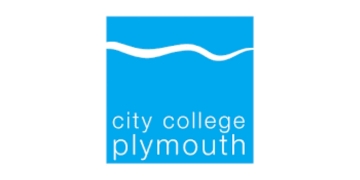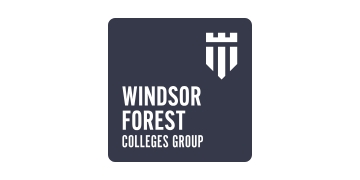Ofsted will start visiting colleges and training providers again from September – with letters about what the inspectors found to be published but with no grades.
The watchdog will also carry out an additional monitoring visit to new providers that have an existing ‘insufficient progress’ rating, which will also result in a “brief” report but will include fresh progress judgements.
This programme of work will take place until January 2021 when a return to full education inspections is planned, as announced by education secretary Gavin Williamson on Thursday.
Ofsted’s inspection activity has been paused since March owing to the outbreak of Covid-19.
Amanda Spielman (pictured), Ofsted’s chief inspector, said the inspectorate will be “part of the rebuilding effort from September” and their visits will “help parents understand how schools and colleges are getting children and students back up to speed after so long at home”.
“And we want to help [schools and colleges], by having constructive conversations and not passing judgement,” she added.
But Geoff Barton, general secretary of the Association of School and College Leaders, said many leaders will need “a lot of convincing that these visits will bring real value or otherwise they will simply be a distraction”.
Guidance specifically for the FE and skills sector about Ofsted’s new “visits”, published today, states that they will “look at how effectively leaders are enabling provision to resume fully following an extended break in formal education, including considering remote education and safeguarding”.
The visits will focus on “all” providers with ‘inadequate’ or ‘requires improvement’ inspection grades as well as providers that the inspectorate has “identified risks or concerns about”.
A “sample” of ‘good’ and ‘outstanding’ providers will also be carried out, which will be “based around a series of professional conversations with senior and middle leaders, staff and learners, with a focus on identifying the barriers that colleges and other further education and skills providers have faced and are still facing in managing the return to full education for learners”.
They will also focus on the curriculum and “how it meets the reasonable needs of learners and stakeholders”; the “approaches used to develop learner’s knowledge and skills”; and safeguarding arrangements.
Ofsted stressed that these visits are “not inspections” and made clear they will not use the education inspection framework and FE and skills inspection handbook, and “we will publish a brief operational note in September about how we will carry out visits”.
But the visits will “not result in any grade or progress judgement; we will publish a letter explaining why we visited, what we found, and the next steps leaders should take,” the guidance added.
The visits will also “not judge providers on their response to Covid-19 during the spring and summer terms 2020”, and “not require any pre-written planning or other documentation for the visit” as the lead inspector will make a “simple phone call” to discuss the logistics of the visit.
Ofsted said it will also not ask providers for documents or records in a certain format as “we will use what they have”; not require staff to prepare any lesson plans or examples of assessment, or to put up any displays for the visit; and not involve a general review of policies and procedures.
FE and skills providers will be given up to two working days’ notice of a visit, but “occasionally longer where necessary”.
In terms of new provider monitoring visits from September 2020, Ofsted said: “We will carry out an additional monitoring visit, covering the three usual themes, to new providers that have one or more existing ‘insufficient progress’ judgements and that would have been due a full inspection up to and during this interim period.
“These visits will follow our established format.
“New provider monitoring visits will not result in an overall inspection grade for a provider. However, inspectors will make a progress judgement for each of the themes examined, and we will publish a brief report.”
Last month FE Week reported on the “frustration” of leaders at new providers, which were previously suspended from starting new apprentices after being judged as making ‘insufficient progress’, as the pause in Ofsted inspections has prolonged their inability to recruit.
Barton said the “rationale, consistency and tone” set by inspectors is going to be “more important than ever” come September, and “these visits must not turn into inspection by another name, at a time when schools and colleges will have so much to deal with”.







Quote: ‘Not inspections’, ‘Not result in any grade or progress judgement’.
‘No judgement on response to Covid’, ‘Not require any prior documentation’.
Right. So why bother. Wouldn’t be that Ofsted are in danger of losing inspectors to other better paid and more pleasurable past times, would it?
(Just off to call my local plumber to come to my house and wander around for a bit, looking at my pipework, making sage nods of the head and then departing. leaving me none the wiser).
And we, the taxpayer, pay for Ofsted.
You must have the same plumber as me Phil! Who would have thought it eh…
This is, I think, on balance good news though Ofsted had to be seen to be doing something with such a huge payroll of full-time inspectors, managers and other support staff. And they are damned if they don’t do something, damned if they do.
As far as I can see however, it does not help those ‘paused providers’ who need a grade 3/requires improvement judgement to be able to start recruiting apprentices again. Some will be going well over the 12 month limit between the initial monitoring visit and a full inspection sadly.
I am not totally sure that it is necessary to reintroduce inspections this soon. After all, schools will only just be familiarising themselves with all the new social-distancing measures, without having to accommodate the additional difficulty of protecting, and being protected from, a group of people whose practice is to move between schools. It seems a dubious priority.
Have OFSTED taken the opportunity of this downtime to prepare for the post Covid-19 new normal? The regime was never designed for workplace training. How are they going to cope with new workplace learning methods delivered by organisations who no longer need offices and whose staff all work remotely from home bases. Will we be expected to have offices just for Ofsted inspections?
With regard to visits to new ITPs who had insufficient progress judgements, I have just taken part in a webinar with Ofsted and visits to these will result in new judgements being made, which will allow the ESFA [if sufficient or significant] to resume funding of the provider. So yes, no full inspection but they will help some providers.
The three themes for visits to grade 3 and 4 providers, along with a sample of grade 1 and 2 providers, will be:
1. How you have ‘maintained your curriculum’
2. How you have ‘assured the quality’ of your curriculum [observation, learner feedback, etc.]
3. Safeguarding [clearly need to be able to talk about the challenges raised by more remote learning activities and areas such as mental health]. If a major problem were seen a follow up emergency MV could be triggered as learners could not be left in danger.
So at least HMI will be doing something that could help the sector if good practice is identified and shared and not just inform the Department!